I was sitting in a small two-room house in Lima as this insight was revealed to me.
“The government, they just provided me with milk. But the church staff, they teach me how to raise my child.”
The speaker was a caregiver in our Child Survival Program (CSP) in Peru back in 2004. I never forgot that quote. It left a lasting impression.
Sometimes, the measure of success by large financial contributors to interventions for the poor is “the medicine is available at the clinic” or “the well has been dug.” These are all good things and the poor can take advantage of them. However, in essence, they are simply services that have been made available to the poor. They do not factor in the learning aspect. There is no guarantee that just because a service is available, the poor will take advantage of it on their own.
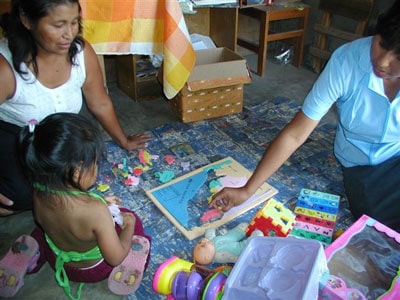
This is where the local church partners that implement our Child Survival Program come in. We partner with local churches in the developing world so that church staff may develop relationships with caregivers in their communities. We call these people “CSP implementers.”
Implementers register pregnant women and caregivers with young children into the Child Survival Program. They visit them at home one to two times a month. During this time, implementers and caregivers develop trust between each other.
The implementer provides the caregiver with child survival knowledge, such as coaching the mother of a newborn as she learns to breast-feed or teaching the mother of an older infant to recognize the symptoms of life-threatening diseases so that the mother can take her child to the local clinic for proper intervention. However, all of this happens as the implementer and the caregiver develop trust in each other. The key word here is trust.
Imagine that one day, you are sitting in your living room reading a book and, suddenly, you get a knock at the door. You go to the door and you are greeted by a group of foreign people. They speak your language, but not that well. You decipher from their conversation that you should eat a certain diet that you can’t afford and that you should practice an exercise regime that you have no interest in or time for.
They invite you to their gathering for next Saturday and they tell you that they have some of this food for this new diet available there. They shake your hand and then they leave.
After reflecting on your conversation for three minutes, you determine it is not worth your time. You decide not go. You return to your couch to read your book.
This same scenario can very easily occur in the developing world except that the caregiver might be milking her goat or cooking a pot of soup over firewood instead of reading a book at the time of the visit.
The suggestions that the visitors make seem foreign to her. She has never heard of this new diet and it doesn’t appeal to her. Since there is no ultimate incentive to participate, she easily ignores the suggestion.
Therefore, trust is the key component to truly making child survival interventions or, for that matter, any interventions for the poor likely to occur.
The desire to practice a new behavior or try out a new way of doing something has to be relational in nature. The fact that we partner with local churches makes this possible. These relationships that implementers develop with the caregivers in their communities are exceptional.
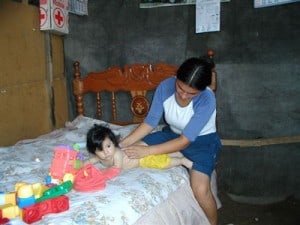
I have heard of implementers who accompany pregnant women during labor. They are present the entire time.
I have heard of caregivers who want to repay the church for the services they have received, but cannot do so monetarily so they come to the church on Saturday mornings to clean the classrooms and help with overall housecleaning.
There is no other motivator like trust. Where there is trust, there is also commitment.
Peer support is also an added advantage to our program. It is typical for CSP caregivers to develop relationships with each other at group trainings to the extent that they encourage each other to participate.
I read of a situation in the Philippines where caregivers visit the home of a caregiver who missed a group activity to make sure she is okay. This peer support alone causes the caregivers to own the program for themselves. They keep each other accountable to participating in the program. Neighbors’ relationships strengthen.
Behavior change is the single most difficult barrier to overcoming poverty. If someone has been doing something a certain way because she learned it that way from her mother and her grandmother and so forth, why should she have any incentive to try something different?
Why should a mother stop feeding her newborn animal milk or tea or plain water and make sure she is properly and exclusively breast-feeding instead?
Why should a caregiver trust a doctor with a needle if she has no relationship with that doctor? She could think it were poison instead of an immunization. It is the trust component.
If the caregiver hears that she should breast-feed from someone she trusts, someone who speaks her language, and someone who has had similar experiences, and if she has seen results from her peers and if she has the knowledge come to her rather than having to go search it out, then yes, she is very likely to change her behavior and practice proper child survival techniques. The commitment from and relationships with the church CSP implementers make all the difference.
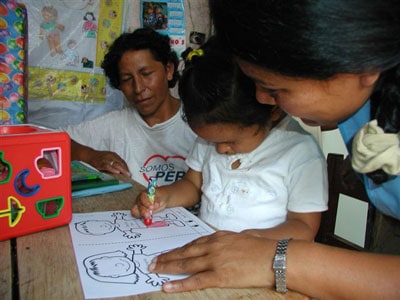
In the end, I would say that the question to measure the success of interventions to the poor is:
“Did the person delivering the service and the person receiving the service build trust in each other?”
If yes, then the rest will take care of itself. The child will survive, the child and the caregiver will be healthy, the caregiver will be empowered and confident about her abilities, and the church staff will have truly been “the hands and feet of Jesus” in their communities. They will have brought new life and new hope to their neighbors.
These scenarios repeat themselves thousands of times each month in over 15 countries worldwide in our Child Survival Program. What a privilege and an honor to be part of these amazing lifesaving and life-changing experiences! To God be the glory!
Please visit RescueBabiesNow.org for more information about our Child Survival Program and how you can become involved.

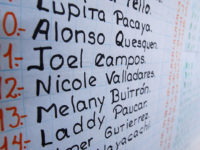


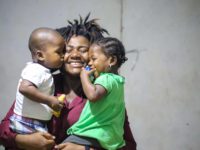


0 Comments |Add a comment